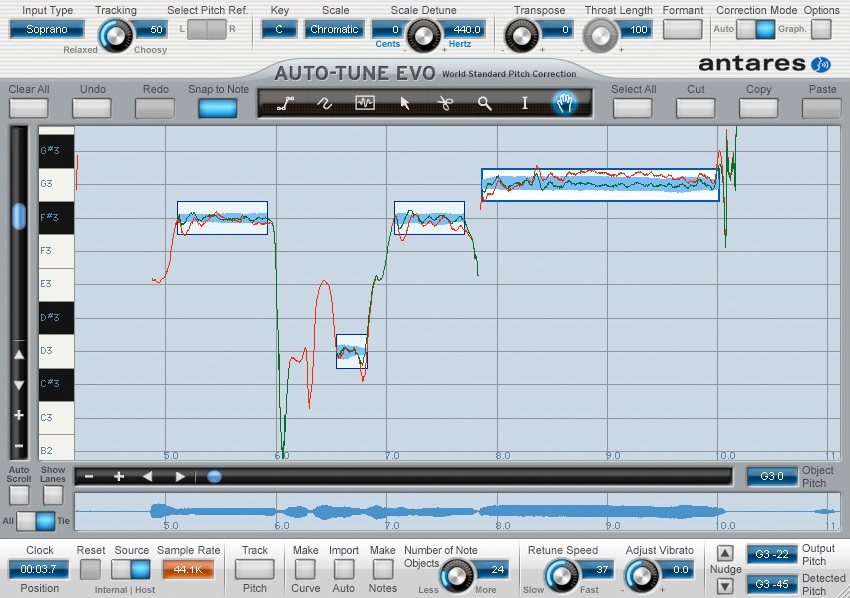An impromptu episode that asks why people (read: gearheads) are so interested in seeing new products "unboxed". I can put my $49 Printer/Scanner/Copier back in the box for you so you can see it unboxed in all its glory.
An impromptu episode that asks why people (read: gearheads) are so interested in seeing new products "unboxed". I can put my $49 Printer/Scanner/Copier back in the box for you so you can see it unboxed in all its glory.
It was only a few weeks ago, during a Superbowl ad that a friend turned to me and said, "Wow, that's awesome they're doing another Pink Panther film, huh?" I turned ready to bludgeon him with the remote control that was creaking audibly in my infuriated grip until I realized he was just saying this to get exactly this reaction out of me. I had forgotten that he was one of the many people I'd ranted to a couple of years back when the first tragic re-installment of this series came to the Sliver Screen... oh, I meant to say sliver, because the rehashing and retreading of this film classic is much like an annoying piece of debris that painfully gets under your skin and will infect you unless you go to extreme pains to remove it.
I will admit to being a lifelong fan of Steve Martin. From his first forays into recorded stand up on LPs that I laughed at with abandon when I far too young to even grasp some of the message involved, to perhaps one of the best comedies ever made in The Jerk. He was always just the right amount of crazy, the right amount of surreal. He had an artistic sensibility shone through no matter how silly he was on stage. He'd pick up a banjo and blow your socks off with a kick ass version of "Ramblin'". He'd satirize drug use in the most bizarre ways with bits like "Let's Get Small". And while there were some of his films that escaped my likability radar, I always respected the man, kind of in the same way I've always respected Neil Young even though I didn't like every album. Hell, I even read a copy of Picasso at the Lapin Agile.
And then I heard him say "hamburger" in a ridiculous French accent 52,389 times in commercials leading up to the release of the first Pink Panther rehash. After the 100th time, I wanted to kill myself. After the 1000th time, I wanted to kill him. After the 10,000th time, I wanted to kill everyone who worked for the studio. After the 50,000th time, I rolled up in the foetal position in a basement corner and saw visions of a smiling Peter Sellers swathed in a bright light, smiling beatific and asking me if I'd like any Birdy Num Nums.
For those who only know Peter Sellers as a name from the past, please go out and rent The Party, Dr. Strangelove, Being There, Lolita, or The Pink Panther (original). Peter Sellers was an eccentric genius. He was one of the those actors that, no matter what part he was playing, was always the center of your attention while on screen. He had screen a quality that, as much as I respect his talent, Steve Martin doesn't.
And so, for the past three years I have held Steve Martin in a bit of contempt, and winced every time King Tut shuffled on my iPod. I thought, if he hadn't agreed to do this film, they would never have proceeded with the travesty. (Don't even get me started on Jean Reno's involvement.) I wanted to burn my copy of The Cruel Shoes as a revolt against a man that turned something classic into something caustic. That was until I started to see previews for Pink Panther 2, and I forgave Steve Martin.
It's not that the second film will be good, because I'm sure, as bad as the first one was, this will tap the depths of suckiness to the Nth degree. My absolution comes from the fact that I can only hate so many people, and so I have turned my attentions to every ticket buyer of the first Pink Panther film. Because while Steve Martin could at least fall back on his old adage that "comedy is not pretty" while pocketing a big paycheque, my faith in the filmgoing public was shattered more than seeing Beverly Hills Chihuahua make $10 million in profit on its opening weekend. I forgive you Steve Martin, but I will not forget.
Mr. Sellers, I hope you are enjoying your Birdy Num Nums. I hope you can forgive us our trangressions. I wish to apologize for filmgoing public of planet Earth. You sir, were a master of your craft and if global warming is your way of getting back at us, I will accept your punishment, until I drown in the Arctic wash.
Warmest regards.
As I was growing up a piano/keyboard player, Keith Emerson was a god to me. (See a wicked live solo piano wank circa 1970 if you doubt)
In expanding on my previous few posts about technology killing music, I am not-so-subtly reminded of the fact that the rumored demise of musical integrity has been greatly exaggerated.
As I opined in a recent podcast, the idea that Microsoft's Songsmith does such a weak job of providing accompaniment to stray vocal tracks shouldn't surprise me the cynic in me, but it does. I maintain that current technology had advanced enough to allow such a product to not only create pleasing, instead of jarring, tracks, but likely produce the next hit single. That technology has perpetuated lies and boosted artists' "talent" is inescapable.
A Gizmodo article points out the prominence of vocal auto-tuners used by almost every major studio today:
"And lately, some rappers, most notably T-Pain and most distressingly Kanye West, have taken up the robotic vocal torch. Even stark minimalist Bon Iver used the software, made by Antares Audio Technologies, on his most recent EP. But Time's recent article explains that auto-tune is used on just about every major-label pop album these days, from Britney Spears to Faith Hill. It's now assumed that auto-tuning will be applied to almost any recording that doesn't specifically refuse it."
Thankfully there are still some relatively honest artists and producers who eschew the use of the software and prefer to allow natural singing voices. Most notably producer Rick Rubin and alt-country songstress Neko Case who "in typical brash honesty, declared, "That shit sounds like shit!" regarding auto-tuned singers, and compared it to the artificiality of diet soda."
Coming soon, Skynet recordings pumping out Top 40 hits to your favorite mp3 download service.

Concerning employers trying to become our new social networks, tech blog entries full of sound and fury, signifying nothing, Comcast pays us to watch porn and the how I'm preparing to blow out the last candle on the integrity of popular music.
Actually, pretty much a visual metaphor for anything that seems doomed at the outset... let's see how long it takes for inept corporations to swallow up a trillion bucks.

I've been playing piano since I was five and, while there have been short periods when performing music has fallen out of my interests, I have almost always had an appreciation for a completely live performance. Such a performance can include anything from a single instrument and voice all they way up to a full orchestra.
I remember playing as a teenager in the 80s-drenched synth-oriented dance pop that pervaded the charts. I remember even buying into the concept of a synthesizer or two but hated the concept of the dreaded sequencers and samplers that would allow even the most inept players to spout forth with "cool" sounding patterns and loops. I could tolerate the idea of a synthesizer making sounds that were unique to the instrument itself and not trying to generate something else. With the persistent adoption of drum machines and string patches and horn sections and poorly-modelled electric pianos, I retreated further into a state that I considered a bit of musical elitism: a piano sound should come from a piano, a drum sound should come from a drum, and a bass guitar sound should come from a bass guitar.
Don't get me wrong, I understand the attraction of simulation. I have recorded songs where I've used a keyboard to create multiple music tracks, but always, in my head at least, the exercise was just that - an exercise. Call me old-fashioned when it comes to music, but I believe there should be something organic to musical sound. And this from a guy who grew up idolizing Keith Emerson and his endlessly-tweakable envelope filters.
As I grew older, I developed a certain tolerance for auto-accompaniment, but always with a sense of kitsch. The idea of the cheesy home organ with beat generator and portamento was to being smiled at and laughed with instead of laughed at. I am willing to listen to someone satrize a traditionally serious song by giving it the Wurlitzer treatment.
And it was with all this derision that I shook my head in disbelief when I learned of Microsoft's Songsmith software during CES last month. While this product's limitations have been shown to glorious and humorous effect by copying the vocal lines of past hits into its engine and watching the generic "reggae" or "soft rock" accompaniment get triggered, could anyone have really expected anything different... you know what? I was exepecting better.
While I believe the concept abhorrent and completely against all of my sensibilities about music, I fully expect that the technology is not out of reach to mesh anyone's random vocalizing with a very solid sounding accompaniment. I anticipate that no matter how bad someone sings, the software's engine should, on the fly, fix any out of tune notes and quantize the rhythmless until they sound inoffensive. I expect that music AI has advanced far enough that realistic-sounding instruments can be modelled in real time to sound at least as good as many of the mediocre ballads that are in the top ten of most pop music charts.
I expect we're on that threshold and, while it should scare the hell out of me, I've discovered I really don't care because if some out-of-tune arhythmic cellar dweller can one day sell a million copies of a song they produced in their basement, and maybe flip the RIAA and the Big Four the finger while doing so, I'll buy a cake and with wry, smiling dismay blow out the last candle on musical integrity.

When I was very young this Rankin and Bass production would come on at 6am on Saturday mornings with the New Adventures of Pinocchio... not the greatest animation or storytelling by any means, but hey, it was 1961 when this was made and a couple decades later before I saw it... if it was Saturday mornings and there was a cartoon, I watched it.
